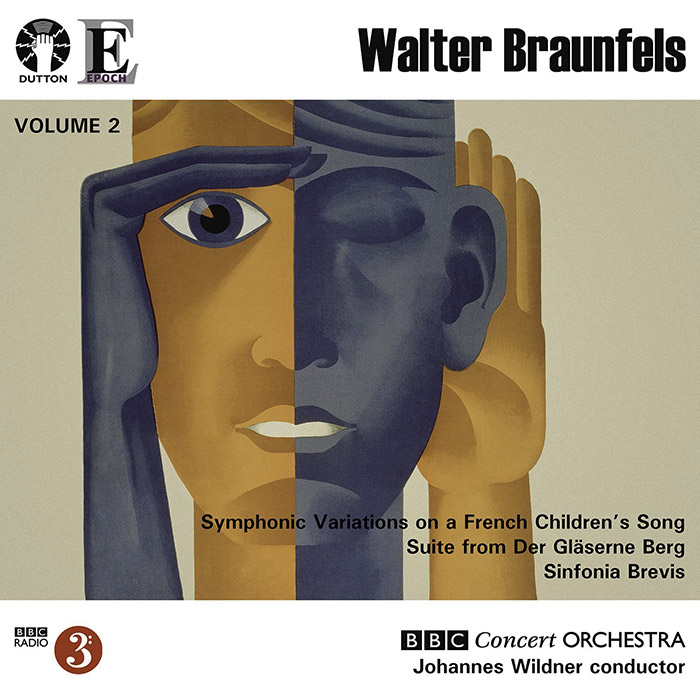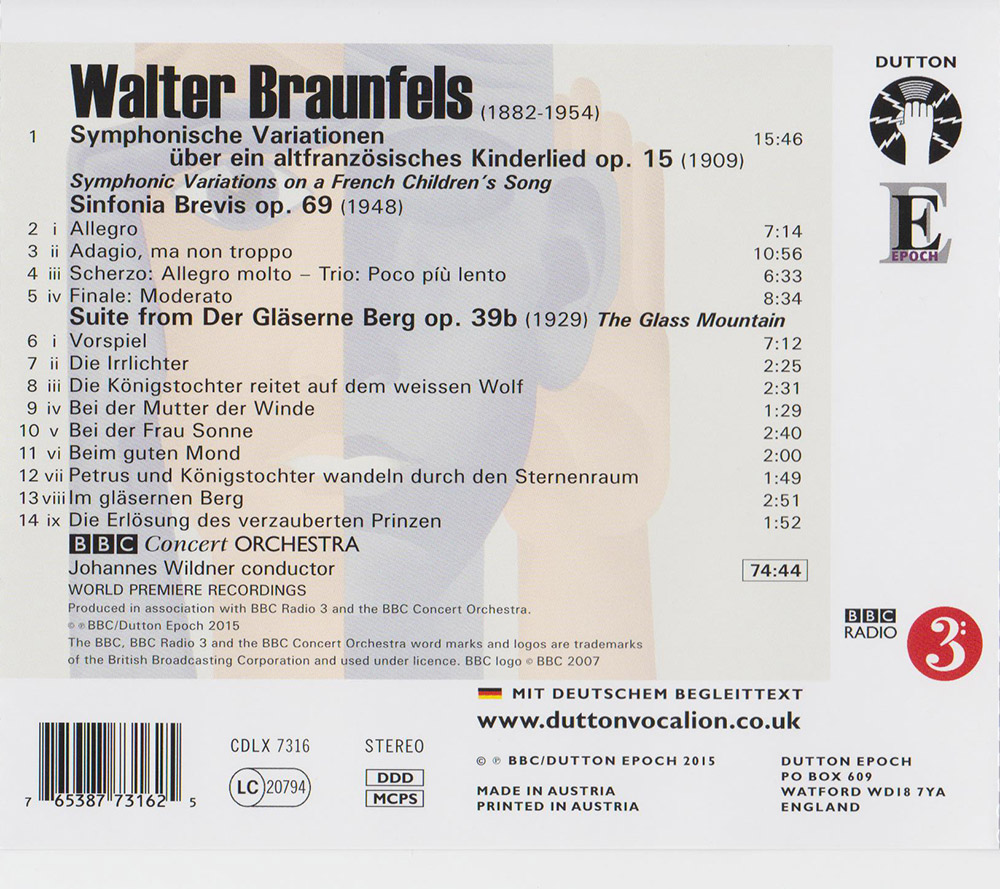Share This
Album at a Glance
Tags
Related Posts
- Roman Statkowski (1859-1925): Piano Music / Barbara Karaskiewicz
- Steve Wilson & Wilsonian’s Grain: Live in New York - The Vanguard Sessions
- Music from America & Abroad for Oboe, Bassoon & Piano / John Dee, oboe; Timothy McGovern, bassoon; Cara Chowning, piano
- Joanna Wallfisch: The Origin of Adjustable Things
Walter Braunfels: Orchestral Works, Vol. 2 / BBC Concert Orchestra; Johannes Wildner
Posted by Paul Ballyk on Jun 30, 2015 in Post Romantic | 0 comments
This second disc from Dutton of orchestral music by Walter Braunfels continues a small revival of the German composer's music, which appears to have been jumpstarted by the 2010 release of his early opera Die Vogel from the Los Angeles Opera. All three of the works here are world premiere recordings, and likely the first time each has been played since early in the 20th century. Johannes Wildner leads the BBC Concert Orchestra in superb performances.
Walter Braunfels (1882-1954) writes in the German classical-romantic tradition. The music demands great virtuosity from the entire orchestra with high demands placed on the brass section in particular. I was reminded of a number of composers including Stravinsky, Mahler, Elgar and Hindemith but above all, Richard Strauss, especially in the opening Symphonic Variations. The three works on the program span a period of nearly forty years and each, with its own distinctive atmosphere, is altogether very memorable and reflects the composer's changing methods of expression and views on tonality over time. It's a fascinating transition to take in, the earlier two works being immediately appealing and the late Sinfonia Brevis more challenging, but ultimately more interesting.
The disc opens with the first orchestral work the composer completed, the charming, single-movement Symphonic Variations on a French Children's Song, Op. 15, full of Straussian heroism, mischief and wit. The second work is Braunfels' Sinfonia Brevis, Op. 69, a work produced at the end of his career, six years before his death in 1964. It's a darker work, even disturbing at times, and brings into play certain modern yet tonal techniques of the first half of the 20th century. There's much here that is engaging, lyrical, and effectively orchestrated; the composer had clearly claimed his own voice by this time.
Completed in 1929, the concluding piece is an orchestral suite based on Braunfels' opera, The Glass Mountain. Chronologically, it comes midway between the previous two compositions and strikes a balance between the composer's early and late styles. The work is made up of a series of short movements, sounding much like a balletic tableau. Scored for a smaller orchestra, Braunfels displays a true and unique mastery of orchestral color, melody and harmony. The samples in the right sidebar from the album are the concluding two movements of this work. In the first excerpt, listen to the wonderful effect Braunfels achieves adding to the second statement of the opening theme a harmonically disparate passage of rising chromatic scales in the winds. I get chills every time I hear it.
If you're interested in exploring more of Braunfels' orchestral music, there's an earlier release from Dutton of three middle period works (DUT 7304) including his Piano Concerto and the Scottish Fantasy for viola and orchestra. I hope this Braunfels revival gains steam. On the basis of this recording, it would be welcome and gratifying.
Walter Braunfels, who died in 1954, was one of the great twentieth-century German composers who were temporarily eclipsed by the Nazi era and the 1950s avant-garde. This second volume in Dutton Epoch’s survey of Braunfels’ memorable orchestral music spans from his luxuriant early Symphonic Variations on a French Children’s Song to the utterly delightful orchestral suite The Glass Mountain (Der Gläserne Berg) and the powerfully satisfying Sinfonia Brevis.
Source: Dutton Records
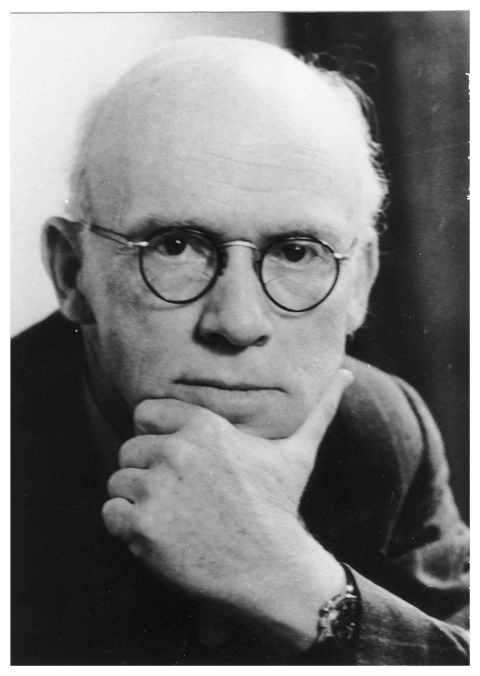 Walter Braunfels |
Walter Braunfels, composer Walter Braunfels (19 December 1882 – 19 March 1954) was a German composer, pianist, and music educator. Braunfels was born in Frankfurt am Main. His first music teacher was his mother, the great-niece of the composer Louis Spohr (Levi 2001). He continued his piano studies in Frankfurt at the Hoch Conservatory with James Kwast. He achieved early success with the melodious opera Die Vögel (The Birds, 1920), such that Adolf Hitler, not realising that Braunfels was half-Jewish, in 1923 invited Braunfels to write an anthem for the Nazi Party, which Braunfels “indignantly turned down” (S. Braunfels 2010). Braunfels performed as a professional pianist for many years. In 1949 he played Beethoven’s Diabelli Variations on a radio broadcast. At his farewell concert as pianist on 19 January 1952, he played Bach’s D major Toccata, Beethoven’s piano sonata no. 32 op. 111 and the arrangement of the Organ Fantasy and Fugue in G minor by Liszt. Walter Braunfels was well known as a composer between the two World Wars but his works fell into oblivion after his death. There is now something of a renaissance of interest in his output. His opera Die Vögel, based on the play The Birds by Aristophanes, was recorded by Decca in 1996 and has been successfully revived (for example, by the Los Angeles Opera in 2009). In 2014 Die Vögel was staged in Osnabrück and Der Traum ein Leben in Bonn. Braunfels’s music is in the German classical-romantic tradition. His Phantastische Erscheinungen eines Themas von Hector Berlioz is a giant set of variations. “Structurally the work has something in common with Strauss’ Don Quixote—on LSD,” noted David Hurwitz of ClassicsToday. “The orchestral technique also is quite similar, recognizably German school, with luscious writing for violins and horns, occasional outbursts of extreme virtuosity all around, and a discerning but minimal use of additional percussion” (Hurwitz 2005). Braunfels composed music in a number of different genres, not only operas, but also songs, choral works and orchestral, chamber and piano pieces. Source: Wikipedia ______________________________________________________
|
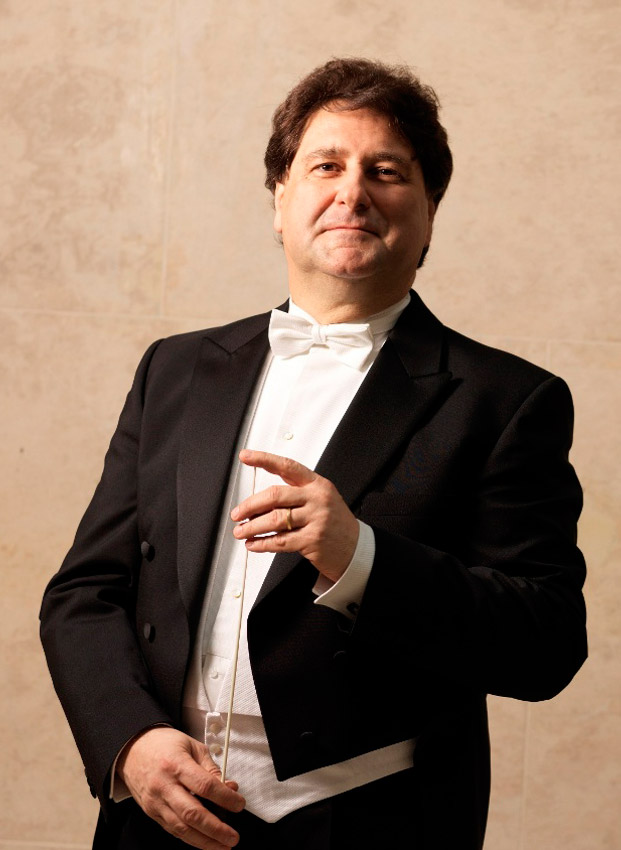 Johannes Wildner |
Johannes Wildner, conductor Johannes Wildner (born 1956) is an Austrian conductor. Wildner studied conducting, violin and musicology and has established himself as one of the foremost Austrian conductors. His years of experience as a member of the Vienna Philharmonic and the Vienna State Opera Orchestra have given his conducting a distinctive stamp. After positions as Chief Conductor of Prague State Opera (1994-95) and First Permanent Conductor of Leipzig Opera (1996-98), Johannes Wildner was the General Music Director of the New Philharmonic Orchestra of Westphalia (Germany) for ten years from 1997. He has been Principal Guest Conductor of the BBC Concert Orchestra in London from 2010. Wildner has recorded over 60 CDs, DVDs and videos, including the complete versions of Johann Strauss’ Die Fledermaus and Mozart’s Così fan tutte, live recordings of Carmen and Nozze di Figaro, Bruckner’s Third and Ninth Symphonies, and various CDs of previously unknown repertoire by Zeisl, Marx and David. In 2010 he released Robert Schumann’s Complete Works for Piano and Orchestra, with pianist Lev Vinocour and the RSO Vienna. In 2013, a recording of Beethoven’s violin concerto with violinist Alexandre da Costa and Beethoven’s 7th Symphony with Taipei Symphony Orchestra was released, as well as recordings of works by Braunfels and D’Erlanger with the BBC Concert Orchestra. Source: Wikipedia _____________________________________________________ |
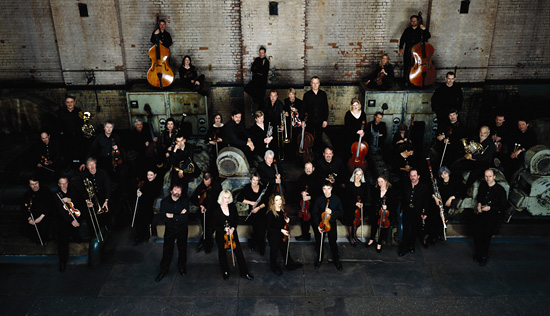 BBC Concert Orchestra |
BBC Concert Orchestra The BBC Concert Orchestra is a British orchestra based in London, one of the British Broadcasting Corporation’s five radio orchestras. With around fifty players, it is the only one of the five which is not a full-scale symphony orchestra. The BBC Concert Orchestra is the BBC’s most populist ensemble, playing a mixture of classical music, light music and popular numbers. Its primary role is to produce music for radio broadcast, and it is the resident orchestra of the world’s longest running live music program, Friday Night is Music Night on BBC Radio 2. Source: Wikipedia |
![]() About Paul Ballyk
About Paul Ballyk
all about Paul
Twitter •
| Thinking about purchasing this album?
Follow this link for more album details or to make the purchase. Buy it now |
“Not just recommended. Guaranteed.”
We stand behind every album featured on Expedition Audio. Our objective is to take the monetary risk out of music exploration. If you order this album from HBDirect.com and do not like it you can return it for a refund.





